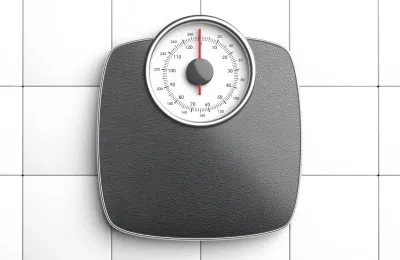The Importance of Sleep: How it Impacts Your Mind and Body
Chilipad Editorial Team • Aug 25, 2025

Key Takeaways
Sleep is important because it is a core biological need that supports brain function, physical health, and long-term well-being.
- Sleep strengthens memory, improves focus, and supports learning, creativity, and problem-solving.
- During deep sleep, the body repairs muscles, regulates hormones, and supports immune system function.
- Consistent, quality sleep helps regulate mood, manage stress, and support emotional and mental health.
- Chronic sleep deprivation is linked to higher risks of heart disease, diabetes, obesity, and shortened lifespan.
- Prioritizing sleep isn’t optional—it’s a foundational habit for both daily performance and long-term health.
Why does sleep matter so much for your health? Think of it as your body’s built-in reset button. Quality sleep doesn’t just rest your eyes—it sharpens memory, keeps emotions in check, strengthens your body, and reinforces your immune system.
Sleep isn’t just “downtime”; it’s active maintenance. While you sleep, your brain sorts and stores information, your body repairs itself, and your overall health gets a tune-up. Consistently good sleep translates to sharper thinking, better moods, stronger immunity, and even long-term protection against chronic conditions.
Prioritizing sleep isn’t about being indulgent—it’s about being efficient. By giving your body and mind the rest they need, you set yourself up for clearer focus, more energy, and a more balanced life.
Transform Your Sleep, Transform Your Life.
Your best life starts with better sleep. The Chilipad helps you achieve the deep, quality sleep you need to thrive. Invest in your health and discover the transformative power of temperature-regulated sleep.
Boosts Cognitive Function
Sleep isn’t just downtime, it’s prime time for your brain. A good night's sleep keeps your mind sharp, your memory strong, and your problem-solving skills on point.
Here’s how it works: during NREM sleep, your brain files away facts and knowledge (think: what you studied or read). During REM sleep, it fine-tunes skills and tasks (like riding a bike or coding faster). Together, these stages run your mental “save and upgrade” system, making you not only smarter but also more creative.
Skip sleep, though, and the effects show up fast: shorter attention spans, slower reaction times, and a foggy head that makes even simple tasks feel like uphill battles. Long term, chronic sleep loss doesn’t just make you groggy—it can increase the risk of cognitive decline and even result in sleep disorders.
Good sleep bolsters creative thinking by restructuring and re-organizing thoughts during the sleep cycle. Whether you’re an artist looking for inspiration or a student cramming for exams, sleep helps you perform at your best.
Experts recommend getting at least seven to nine hours of quality sleep each night to support optimal brain activity and cognitive function, raising the question of how much sleep is necessary for everyone.
Improves Physical Health
Sleep isn’t just about recharging your brain. It’s also your body’s nightly repair shift. While you sleep, your system repairs cells, balances hormones, and replenishes your energy reserves.
With enough quality sleep, your body regulates appetite hormones, keeps energy steady, and ensures every system runs smoothly.

Improves Heart Health
Your heart loves a good night’s sleep as much as your brain does. While you rest, blood pressure naturally dips, giving your cardiovascular system a much-needed break. [1] If you don't get a good night's sleep, it can lead to higher blood pressure, one of the biggest red flags for heart disease. [2]
Sleep also lowers resting heart rate and calms down inflammation, two big wins for heart health. [3] Without it, your heart works overtime, raising the risk of issues like atherosclerosis. Add in the fact that poor sleep is tied to obesity, type 2 diabetes, and sleep apnea, and the connection between sleep and heart health is hard to ignore. [4]
Strengthens the Immune System
A strong and healthy immune system relies on quality sleep for strengthening. Good sleep restores immune function, acting as the body’s reset button to fight off infections more effectively. When you’re well-rested, your body produces more antibodies, which are important for fighting infections. [5]
Individuals who sleep less than seven hours a night are significantly more likely to catch colds compared to those who sleep eight hours or more. [6] This statistic underscores the importance of getting enough sleep to maintain a strong immune system and avoid common health problems.
Supports Emotional Well-being
Sleep isn’t just about physical recovery—it’s also a major player in keeping your emotions in check. A good night’s sleep helps your brain reset, making it easier to handle stress, keep a clear head, and bounce back from daily challenges.
Cut back on sleep, though, and your mood takes the hit. Decision-making gets fuzzy, patience runs thin, and everyday stress feels heavier. Over time, poor sleep can throw off brain chemistry and stress hormones, raising the risk of anxiety, depression, and other sleep-related issues.
It's pretty simple: sleep and your emotions are connected. When you sleep well, you feel better. You're less stressed, and you tend to see the brighter side of things. Who doesn't want that?
Boost Productivity and Performance
When it comes to productivity and performance, sleep is a game-changer. Ever try to work when you're totally exhausted? It's brutal. That's because sleep is a major player when it comes to how well you function. It affects your brain power, your focus, everything. Getting quality sleep means you're ready to tackle the day with a clear head and you can get more done.
Experts suggest adults should aim for seven to nine hours of sleep each night to optimize daytime performance. [7] This amount of sleep helps maintain optimal levels of cortisol, a hormone that promotes alertness in the morning. With better sleep, you’ll find yourself more focused, efficient, and capable of handling tasks with ease.
Note: Keep in mind that while getting enough sleep is important, sleep quality holds equal, if not greater, significance.
Think of sleep as the base of your whole day. If you want to be more productive, at work, in class, or just in your daily life, you need good sleep. It really does make you more efficient and effective.

Enhances Your Mood
Quality sleep can completely transform your outlook. Instead of dragging through the day, you wake up recharged, clear-headed, and ready to take on whatever’s ahead.
Skip the sleep, and it shows—hello irritability, mood swings, and stress overload. Poor rest throws off your emotional balance, making it harder to stay calm and positive. For anyone already dealing with a sleep disorder, sticking to a consistent sleep schedule is even more important for keeping mood steady. [8]
Keeps Blood Sugar in Check
Sleep plays a big role in how your body handles insulin—the hormone that helps move glucose (sugar) into your cells for energy. When you’re well-rested, your blood sugar stays more balanced, lowering the risk of issues like diabetes and keeping your body running smoothly.
Cut corners on sleep, and your blood sugar control can get thrown off, making you more likely to face health problems down the line. Quality rest isn’t just about feeling refreshed—it’s also about giving your body the tools it needs to function the way it should.
Helps Maintain Weight or Weight Loss
Sleep and weight are more connected than most people think. When you don't get enough sleep, your body actually makes it harder to lose fat, even if you're eating carefully and cutting calories. In one study, people who slept just 5.5 hours lost less body fat compared to those clocking in at 8.5 hours. [9]
Why? Poor sleep messes with your hunger hormones—dropping leptin (the “I’m full” signal) and boosting ghrelin (the “I’m starving” signal). That combo makes it tougher to resist cravings and easier to overeat.
On the flip side, good sleep makes weight management easier. You’ll have more energy to stay active, fewer late-night snack attacks, and better results if you’re trying to lose weight.
Note: Don’t skip breakfast—it’s like starting your day on 10% battery. Fuel up so your energy (and focus) actually lasts.

Improves Athletic Performance
If you’re serious about fitness), don’t overlook sleep—it’s just as important as your workout. Quality sleep sharpens reaction time, improves coordination, builds strength and endurance, and even helps with focus and problem-solving.
Sleep also gives your body the recovery window it needs to repair muscles, heal faster, and lower your risk of injury. Whether you’re chasing PRs in the gym or peak performance on the field, consistent sleep is your built-in performance enhancer.
Final Thought
Sleep is the ultimate foundation for your health. It boosts your brain, stabilizes your mood, and is critical for your physical well-being.
The payoff for making sleep a priority is massive: better focus, easier weight management, and a stronger immune system. Don't let those late nights steal your success and happiness. Make rest non-negotiable, and you'll quickly reap the rewards of a healthier, happier you. Sleep well!
Frequently Asked Questions About The Importance of Sleep
What Are the Benefits of Sleep?
- You get sick less often
- Maintain a healthy weight
- Lower the risk of serious health issues
- Reduce stress
- Enhance cognitive function.
- Reduced Risk of Illness
- Lower the Risk of Chronic Conditions
- Improved Mood
- Enhanced Cognitive Functions
- Increased Productivity
- Healthier Living
What Does a Lack of Sleep Cause?
A lack of sleep can significantly impair your immune function and cognitive abilities, leading to increased vulnerability to injuries, infections and difficulties with learning, decision-making, and emotional regulation.
Can Poor Sleep Quality Affect My Health?
Yes, poor sleep quality can greatly impact your mental health, increasing the risk of mood disorders and impairing emotional regulation. Prioritizing sleep is essential for maintaining mental well-being.
Why is Sleep Important for the Body?
Sleep is important for:
- Repairs muscles and tissues
- Boosts memory, focus, and creativity
- Balances mood and stress
- Strengthens the immune system
- Supports heart health and metabolism
Peer-Reviewed Research References
-
Lyu, B., Hagen, E.W., Ravelo, L.A., Peppard, P.E.
Blood Pressure Dipping and Sleep Quality in the Wisconsin Sleep Cohort.
Journal of Hypertension, 2020.
Study Type: Population-Based Cohort Study
Key Finding: Found that poorer sleep quality was associated with reduced nocturnal blood pressure dipping, a pattern linked to higher cardiovascular risk.
View Study
Source URL: https://pubmed.ncbi.nlm.nih.gov/31714339/
-
Lopez-Jimenez, F.
Sleep Deprivation: A Cause of High Blood Pressure?
Mayo Clinic, 2024.
Source Type: Academic Medical Guidance
Key Insight: Explains how chronic sleep deprivation can contribute to elevated blood pressure through hormonal imbalance, sympathetic nervous system activation, and impaired vascular recovery.
View Resource
Source URL: https://www.mayoclinic.org/diseases-conditions/high-blood-pressure/expert-answers/sleep-deprivation/faq-20057959
-
National Institutes of Health (NIH).
How Sleep Leads to Healing after Heart Attack.
NIH, 2024.
Source Type: Government Health Research Communication
Key Insight: Highlights research showing that adequate sleep supports cardiac healing and repair processes following myocardial injury, emphasizing sleep’s role in cardiovascular recovery.
View Resource
Source URL: https://www.nih.gov/news-events/nih-research-matters/how-sleep-leads-healing-after-heart-attack
-
Aggarwal, B.
Sleep Is Good for Your Heart.
Columbia University Irving Medical Center, 2022.
Source Type: Academic Medical Guidance
Key Insight: Reviews how consistent, high-quality sleep supports heart health by regulating blood pressure, inflammation, and metabolic function.
View Resource
Source URL: https://www.cuimc.columbia.edu/news/sleep-good-your-heart
-
Olson, E.
Can Lack of Sleep Make You Sick?
Mayo Clinic, 2018.
Source Type: Academic Medical Guidance
Key Insight: Explains how insufficient sleep weakens immune defenses, increases inflammation, and raises susceptibility to illness.
View Resource
Source URL: https://www.mayoclinic.org/healthy-lifestyle/adult-health/expert-answers/sleep-deprivation/faq-20057757
-
Yale Medicine.
How Sleep Affects Your Immune System.
Yale Medicine, 2023.
Source Type: Academic Medical Guidance
Key Insight: Describes how sleep supports immune memory, antibody production, and inflammation control, and how chronic sleep loss compromises immune resilience.
View Resource
Source URL: https://www.yalemedicine.org/news/how-sleep-affects-immunity
-
Wein, H.
Good Sleep for Good Health.
NIH News in Health, National Institutes of Health, 2021.
Source Type: Government Health Education
Key Insight: Summarizes how adequate sleep supports cardiovascular, metabolic, immune, and cognitive health across the lifespan.
View Resource
Source URL: https://newsinhealth.nih.gov/2021/04/good-sleep-good-health
-
Eshera, Y.M., Gavrilova, L., Hughes, J.W.
Sleep Is Essential for Cardiovascular Health.
American Journal of Lifestyle Medicine, 2023.
Study Type: Analytic Review
Key Finding: Reviews evidence linking insufficient sleep and sleep disorders to increased cardiovascular mortality, highlighting sleep as a modifiable cardiovascular risk factor.
View Study
Source URL: https://pmc.ncbi.nlm.nih.gov/articles/PMC11082862/
-
Nedeltcheva, A.V., et al.
Insufficient Sleep Undermines Dietary Efforts to Reduce Adiposity.
Annals of Internal Medicine, 2010.
Study Type: Randomized Controlled Trial
Key Finding: Found that sleep restriction reduced fat loss and increased hunger during calorie restriction, linking sleep duration to metabolic and cardiovascular risk.
View Study
Source URL: https://pubmed.ncbi.nlm.nih.gov/20921542/









